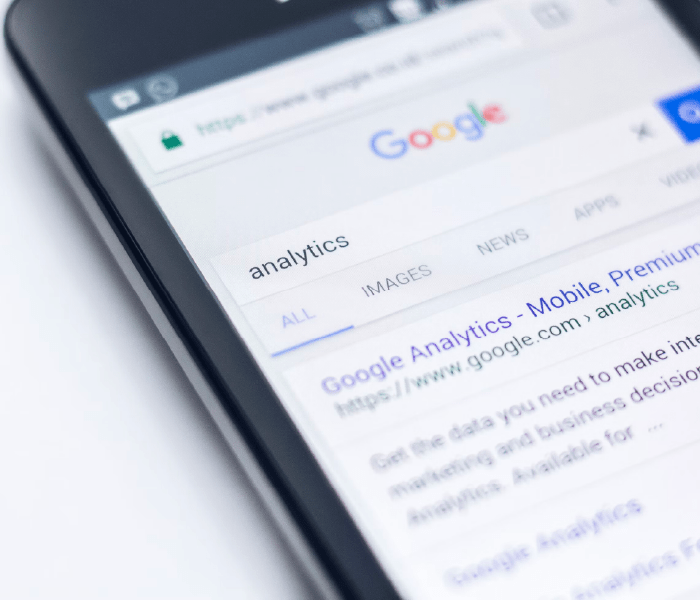Searches on the Internet are never random, but rather have a specific intention. Deducing which one it is is extremely useful when optimizing your SEO positioning. By knowing it, you will be able to create a strategy based on one or more keywords that take your buyer persona directly to your product.
By defining the correct keywords, everything will be very simple. You will be able to define an action plan to seduce your prospect, providing them with valuable and interesting content regarding their search. Providing innovative information that helps define the purchase adds added value to your service and positions you as a reference in your area. If the customer’s perception of your brand is positive, you will easily achieve conversions and loyalty.
That is why it is so important to define what the intention is behind each search. And in this post we give you tips that will help you!
What do people search for in browsers?
When a person starts a search on Google or some other browser, they have a goal or intention in mind. According to Semrush, these can be classified into 4 categories, which are:
Information / Knowledge

The user seeks to delve deeper into a topic of interest, whether in a scientific field, entertainment, literature, science fiction, health, history, etc. Generally, they have an idea of the topic or are curious to know what it is about. They ask specific questions in the search engine: where, why, how and who.
Examples of this type of search could be: What is SEO? Who is the protagonist of Star Wars? Why do my gums bleed? or What are the 7 wonders of the ancient world?
Even how tall the tallest building in the world is or how old an actor/actress or political figure is! And the search engine usually answers the most specific questions exactly.
A good strategy you can use is to identify what specific questions are most frequently asked and answer them concisely and directly. In this way, the search engine will position your site with the answer.
For most information searches, the answers are blogs that address these topics, so keyword management is essential to have optimal positioning.
Navigation / Website
In this classification, the user searches for something in particular, be it a brand or a website that they already know. Here the user is very clear about what they want to find. Examples of these searches are: Starbucks, iPhone 15 features, creating a Gmail account or temporarily deactivating my Facebook.
As you can see, the intentions are directed towards a brand and its website. You can use these keywords to draw the attention of the public who are looking for shortcuts to access the service or find certain information on the page more easily.
Commercial
Include keywords that your audience uses when researching before making a purchase. This type of intention is between informational and transactional, since the user requires more background before taking action. Queries such as: which are the best checking accounts, HBO Max vs Star +, plants that require little watering or corporate email alternatives are common in this type of search.

Commercial search results often include reviews from other users on separate pages. In this case, identifying the most relevant keywords for your brand is a little more complex. But there are very useful strategies to maintain visibility, such as always using your brand name, the main service you provide, and always asking satisfied customers for recommendations so they can comment on their experience.
Transactional / Do
This intention is due to the user’s need to acquire a specific thing, complete a subscription to a Newsletter or download software. Examples of this type of search are: free Netflix trial, online personality test, microblading in Santiago or iPhone 15 maximum price.
Transactional intent keywords are essential in digital marketing and must have good SEO positioning; since they are the ones that future clients use when they are ready to make a conversion.
How is search intent determined?
User search intent is closely tied to the user’s location in the marketing funnel. That is to say:
Consciousness or Awareness
The person becomes aware that they have a need and decides to investigate the best way to resolve it. Therefore, search for informative keywords or ask the search engine directly.
Consideration
The person seeks to compare products or services and obtain more information. Therefore, use commercial keywords, look for comparisons, rankings or reviews.
Conversion
The user searches for the transactional keywords that will allow them to carry out the conversion. Look for places that offer the service you want to hire within your area, free trials, better prices. That is, take the last steps before defining the purchase. It is the perfect time to persuade them to take action and schedule, offer promotions and discounts.
How does Google interpret users’ search intent?

The organic results displayed by Google are evaluated according to the E-E-A-T quality guidelines, stand for Experience (E) – Knowledge (E) – Authority (A) and Reliability (T). Together, these concepts seek to measure both the quality and relevance of the content that will be shown to the user.
Specifically, the search engine selects its first positions considering the experience evidenced by the website or brand. on a particular subject, the information it provides and its authority in the sector.
These features translate into the confidence with which it is perceived by the user, who can take its voice as an authentic reference.
Search engines like Google identify the user’s intention by the way they formulate the query or the most relevant keywords in their search. Thus, if a user types “What is the recipe for rice pudding?”, they will know that their purpose is to obtain information and learn, for which they will be directed to the sources they consider suitable, discriminating from other searches with clearly transactional or commercial.
To obtain good SEO positioning, it is advisable to have a website adapted to both PCs and mobile devices, so that they load quickly and are easy to navigate. It is also important to have a link building strategy, where you link to quality sources, with experience and credibility. Backlinks will help improve your perceived trust and increase your authority, which will improve your organic SEO positioning.
Search intent is essential in your SEO positioning strategy
Knowing how to interpret and satisfy your audience’s search intent brings many advantages to improving your online presence. For example:
Relevance
You can create content that directly responds to the user’s needs, that answers their specific questions, thereby increasing the relevance of your website and organic SEO positioning.
Better UX
By providing useful and relevant information, satisfying the user’s search intent, you will increase stickiness and improve conversions.
Authority
By constantly satisfying your users’ search intent with quality content, you build authority and trustworthiness in your niche, which will also improve your results on Google and other search engines.
Talk to people, not search engines
The keywords must be inserted in the text organically and not forced. Integrating them correctly gives credibility to your content, allowing you to offer serious, reliable, quality information that responds to the interests of the audiences. In addition, it prevents you from exposing yourself to sanctions for bad practices, such as Black Hat SEO, which includes overuse of keywords, purchase of links and duplicate content, among others.
At YOPPEN we are specialists in achieving good organic positioning by identifying the search intention of your audience and writing the information to respond to their interests with valuable content. We know how to integrate keywords organically into publications and attract more prospects to generate potential conversions. We will be happy to help you!




